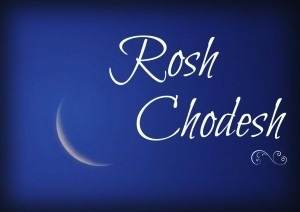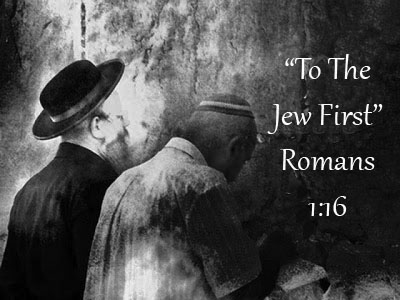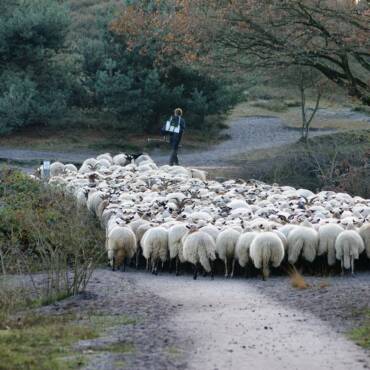Messiah’s Faithfulness each New Month

by Sam Nadler
Though many are familiar with the weekly Sabbath and yearly festivals God gave to Israel, there is another appointed time which is not as well-known. Rosh Chodesh (literally “Head of the Month”) is observed each month at the New Moon, marking the beginning of a new month on the Hebrew calendar.
We see in Paul’s writings that the early believers were familiar with Rosh Chodesh, just as they were with all of God’s appointed times: “Therefore no one is to act as your judge in regard to food or drink or in respect to a Festival or a New Moon or a Sabbath day – things which are a shadow of what is to come; but the substance belongs to Messiah” (Colossians 2:16)
Before the Temple was destroyed in 70 A.D., each of these times were marked by the sacrifices which the priests brought before the Lord. Though sacrifices were made daily and weekly on the Sabbath, God commanded special sacrifices to be made monthly as well:
“Then at the beginning of each of your months you shall present a burnt offering to the LORD: two bulls and one ram, seven male lambs one year old without defect; and three-tenths of an ephah of fine flour mixed with oil for a grain offering, for each bull; and two-tenths of fine flour mixed with oil for a grain offering, for the one ram; and a tenth of an ephah of fine flour mixed with oil for a grain offering for each lamb, for a burnt offering of a soothing aroma, an offering by fire to the LORD. ‘Their drink offerings shall be half a hin of wine for a bull and a third of a hin for the ram and a fourth of a hin for a lamb; this is the burnt offering of each month throughout the months of the year. ‘And one male goat for a sin offering to the LORD; it shall be offered with its drink offering in addition to the continual burnt offering.” (Numbers 28:11-15)
The primary sacrifice made at Rosh Chodesh was the burnt offering of 2 bulls, 1 ram, and 7 male lambs, along with their grain and drink offerings. These burnt offerings (olah in Hebrew) symbolized the total devotion of the people to the Lord. However, these were not the only offerings to be made. There was also the sin offering: one male goat. In Scripture, the goat (aiz in Hebrew) symbolizes strength and willfulness.
Through the burnt offerings, the month is totally dedicated to the Lord; dedication, however, is an act of the will, and in this we all have the propensity to become willfull, stubborn, and resistant to God, the very one we are dedicated to (Deut. 9:6, Neh. 9:16, Zech 7:11, Rom. 2:5, Heb. 10:26, etc.). Both then and now, this rebellious nature of humanity necessitates an offering for sin as well.
As we see in the chart below, Messiah’s sacrifice has fulfilled the requirements for each of these offerings before God. He has become our burnt offering who “gave Himself up for us” (Eph. 5:2), as well as our sin offering:
“He made Him who knew no sin to be sin (offering) on our behalf, so that we might become the righteousness of God in Him.” (2 Cor. 5:21)
In Messiah’s atonement, we no longer have the need to sacrifice animals before God. However, like the early believers, God’s appointed times can continue to mark our days, weeks, months, and years as we remember the perfect sacrifice of our Messiah.
So, each month Rosh Chodesh is a time of renewal of our volitional dedication to the Lord. It also reminds us of our need of Messiah’s sin offering for us as we recognize our dependence not on our own dedication, but on His sacrifice in our service to God. Messiah fulfilled every sacrifice for us, and so on Rosh Chodesh we appreciate again what He has done in each facet of His death for our sins.
Rosh Chodesh Sameach! (Happy New Moon)
Messiah Our Offering:
The Spiritual Significance of the Five Major Biblical Offerings
| The Offering |
The Leviticus portion | The Significance |
The Fulfillment |
|
1) Burnt (Olah) |
Lev. 1; 6:8-13 |
Total Devotion |
Eph. 5: 2
|
|
2) Grain (Minchah) |
Lev. 2; 6:14-24 |
Consistent service |
Jn. 6: 33, 35
|
|
3) Peace (Shalom) |
Lev. 3; 7:11-34 |
United fellowship |
1 Cor. 10:16; 11:25; Eph. 2:13-16; Col 1:20-22; Heb 13:15, 20; Rev 3:20
|
|
4) Sin (Chatat) |
Lev. 4; 5:1-13 |
Mortifying our nature |
2 Cor. 5:21; Rom 3:25; 8:3; Heb 9:26; 10:5-18; 13:12
|
|
5) Guilt (Asham) |
Lev. 5:14- 6: 7; 7:1-10 |
Compensation paid |
Eph. l: 7; 1 Cor 11:27; 2 Cor. 5:19; Isa 53:10
|




Add Comment